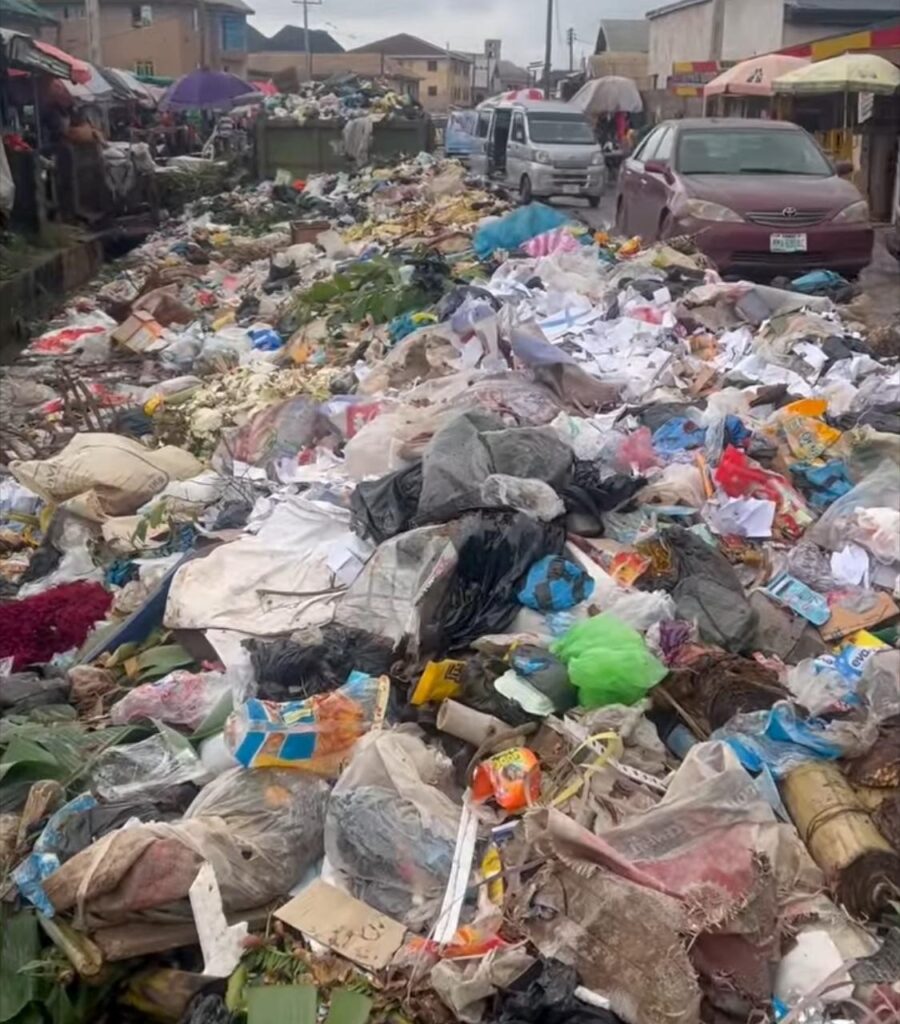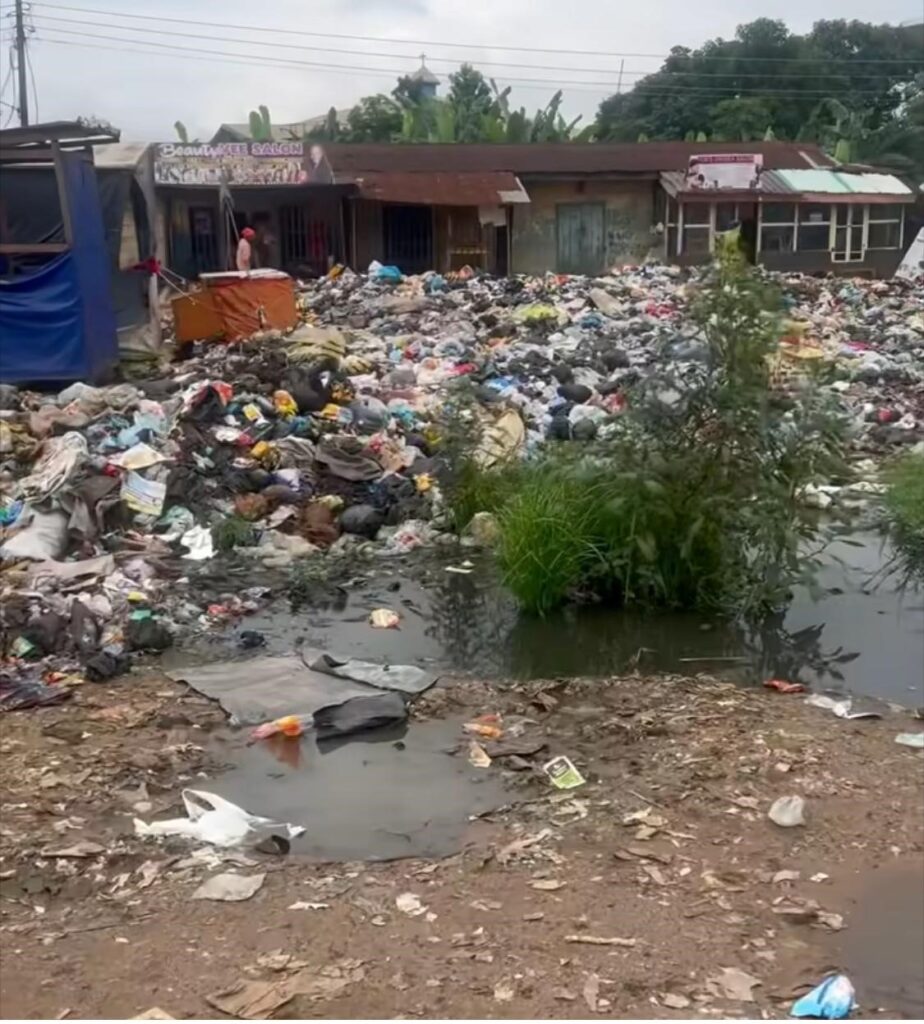The spate of dirt on the streets of Owerri, the capital of Imo State in Nigeria, has become a notable environmental challenge in recent years.
Once acclaimed as one of Nigeria’s cleanest cities, Owerri now faces significant problems with waste accumulation, poor environmental sanitation, and the indiscriminate dumping of refuse.
This decline in cleanliness is having adverse effects not only on the city’s aesthetic appeal but also on public health and safety.
A major factor contributing to the dirt on Owerri’s streets is the indiscriminate dumping of solid waste. Many residents and traders dispose of refuse directly onto roadsides, into gutters, or in unauthorized open spaces.
This practice blocks drainage systems, leading to flooding during rains and producing foul odors. In some areas, such as Old Okigwe Road, Item Street, and Mbari, waste piles up regularly due to poor disposal habits combined with inadequate waste evacuation services.
The presence of dirt and refuse not only clutters the environment but also creates hazardous conditions that can obstruct traffic and promote disease outbreaks.

Municipal waste management in Owerri struggles with several systemic issues. The current solid waste management system lacks sufficient infrastructure, including enough collection vehicles and disposal sites, to meet the needs of its growing population.
Reports indicate that only about half of the daily waste generated is actually collected and appropriately disposed of.
The limited number of operational trucks, estimated at around 20, is insufficient for effective citywide sanitation. Furthermore, conflicts and duplications of responsibilities between local and state agencies add to inefficiencies. This poor coordination hinders progress in tackling the waste management challenges comprehensively.
Financial constraints and inadequate funding are significant barriers to improving Owerri’s waste management.
With limited resources, the state waste management agency cannot invest in modern technologies or expand its collection and disposal capabilities sufficiently.
Such funding shortages also prevent necessary infrastructure development, like additional refuse bins and sanitary public toilets, which could curb some of the waste disposal issues at the source.
Researchers have recommended public-private partnerships to mobilize the funds and technical expertise needed to modernize waste management practices and enforce sanitation laws effectively.
Public attitudes and behaviors further complicate Owerri’s cleanliness problems. There is widespread negligence among some residents and traders regarding proper waste disposal.
Many dump waste in gutters or on the streets partly out of convenience or laziness, and some have developed careless habits such as littering food remnants or plastic trash openly. This neglect undermines government efforts and perpetuates environmental degradation.

Despite these difficulties, there have been efforts by the state government and sanitation agencies to reclaim Owerri’s former status as a clean city.
Task forces have been constituted to monitor and enforce proper waste disposal and penalize offenders. Plans to remove street bins over-time aim to encourage residents to keep waste within their premises until collection days, reducing refuse overflow on roads.
Urban renewal projects targeting road and drainage rehabilitation are also vital to addressing the causes of street dirt accumulation. Successful sanitation in Owerri depends on sustained government action coupled with heightened public awareness and responsibility.
In conclusion, the spate of dirt on Owerri’s streets results from complex interrelated issues including inadequate waste management infrastructure, inadequate funding, poor public environmental practices, and weak enforcement of sanitation laws.
To restore and maintain a cleaner environment, the city requires a multifaceted approach that strengthens governance, invests in modern waste solutions, fosters community participation, and improves public sanitation infrastructure.
Only with these combined efforts can Owerri hope to reverse the current trend of environmental degradation and safeguard the health and well-being of its residents.